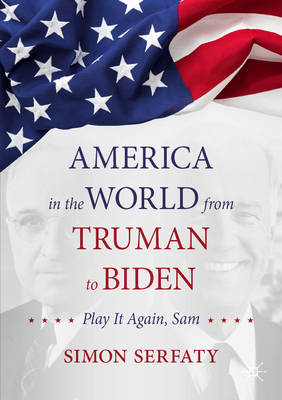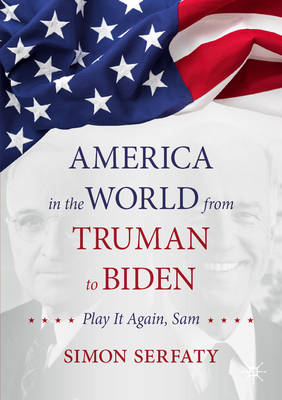
Door een staking bij bpost kan je online bestelling op dit moment iets langer onderweg zijn dan voorzien. Dringend iets nodig? Onze winkels ontvangen jou met open armen!
- Afhalen na 1 uur in een winkel met voorraad
- Gratis thuislevering in België vanaf € 30
- Ruim aanbod met 7 miljoen producten
Door een staking bij bpost kan je online bestelling op dit moment iets langer onderweg zijn dan voorzien. Dringend iets nodig? Onze winkels ontvangen jou met open armen!
- Afhalen na 1 uur in een winkel met voorraad
- Gratis thuislevering in België vanaf € 30
- Ruim aanbod met 7 miljoen producten
Zoeken
€ 31,95
+ 63 punten
Omschrijving
Does America still count in the world? Can the world still count on America? In raising such questions halfway into a series of systemic shocks that began in September 2001, Simon Serfaty, a long-time scholar of international politics, reminds Americans that their country's well-being and that of the world are intertwined. Play it again, Sam: History is in a foul mood again, and this is no time to come home and leave behind an unfinished European Union facing the ghosts of a revanchist Russia still claiming the Old World as its own; a strategic dark hole in the Greater Middle East, on the eve of a global Sarajevo moment; and China's surging hegemonic power in a continent fraught with too much history and too little geography.
Admittedly, what is good for America may no longer be best for all the West, and what is good for the West may no longer be good for much of the Rest: the unipolar moment is irreversibly over. Yet, writing in an elegant style and with muchhistorical insight, Serfaty argues that even with the old power map irreversibly gone, mainly to the benefit of the non-Western world, a new world order for the twenty-first century will remain dependent on the U.S. role, its capabilities and its efficacy, as well as its leadership and its purpose.
Admittedly, what is good for America may no longer be best for all the West, and what is good for the West may no longer be good for much of the Rest: the unipolar moment is irreversibly over. Yet, writing in an elegant style and with muchhistorical insight, Serfaty argues that even with the old power map irreversibly gone, mainly to the benefit of the non-Western world, a new world order for the twenty-first century will remain dependent on the U.S. role, its capabilities and its efficacy, as well as its leadership and its purpose.
Specificaties
Betrokkenen
- Auteur(s):
- Uitgeverij:
Inhoud
- Aantal bladzijden:
- 180
- Taal:
- Engels
Eigenschappen
- Productcode (EAN):
- 9783030817602
- Verschijningsdatum:
- 31/10/2021
- Uitvoering:
- Paperback
- Formaat:
- Trade paperback (VS)
- Afmetingen:
- 148 mm x 210 mm
- Gewicht:
- 276 g

Alleen bij Standaard Boekhandel
+ 63 punten op je klantenkaart van Standaard Boekhandel
Beoordelingen
We publiceren alleen reviews die voldoen aan de voorwaarden voor reviews. Bekijk onze voorwaarden voor reviews.











